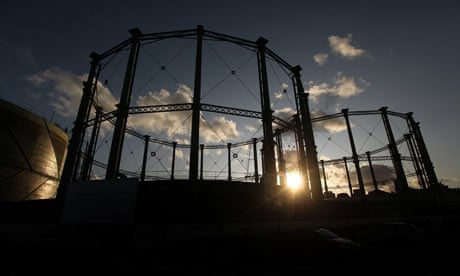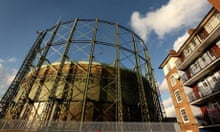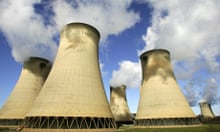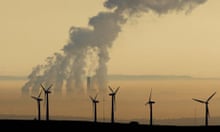Vauxhall's car plant at Ellesmere Port on Merseyside and British Sugar's refineries at Bury St Edmunds and Newark are among nearly 100 factories that have had their gas cut as Britain's energy infrastructure creaks under the strain of the great freeze.
The National Grid has told British Gas and other power firms to cut the supply to major corporate customers, in an attempt to preserve gas supply for households as the weather causes a surge in demand.
However, the Grid said this morning that pressure on their large industrial users had eased as temperatures rose from below freezing.
"The weather is getting slightly warmer, which does have an effect on demand for heating, so we don't have to invoke the interruptible contracts to so many businesses" a National Grid spokeswoman said.
The situation had also been eased by the return of supplies from some gas fields and imports from liquefied natural gas tankers.
Opposition MPs said inadequate planning by the government in previous years had left the country heading towards an "energy crisis" that could only dent the UK's fragile economic recovery.
But the government maintained last night that gas cuts were now only affecting 27 factories, and that all these had signed up to discount contracts allowing suppliers to interrupt their supplies in periods of high demand.
Energy minister Lord Hunt said: "This is a period of exceptionally high demand. The system is coping as it should. These sort of arrangements have been commercially entered into."
Factories in the north-west of England and east Midlands are worst hit out of the 94 customers who have had gas supplies axed for the first time in up to 20 years, in some cases in a response to severe weather and creaking power infrastructure.
In the first tangible sign that fears over energy shortages are translating into supply disruption, the grid has demanded cuts to those customers who signed "interruptible" contracts.
In addition the grid issued a second "gas balancing alert" in four days – the first time it has had to issue two such warnings in quick succession. The call to customers to voluntarily reduce usage wherever possible came as the supply squeeze was made worse by production problems at Troll, a Norwegian North Sea gas field.
"There are some customers in the north-west and east Midlands who have had supplies interrupted because they are on interruptible contracts and we are facing high demand," said a grid spokeswoman.
Well-known manufacturers at locations around the country, including the south and east of England, confirmed they were experiencing power supply problems but most asked for their names to be kept private to avoid panicking shareholders. Vauxhall and British Sugar both confirmed gas had been cut off but said production was being kept up by use of stand-by generators fired by oil.
"From 6pm on Monday British Gas asked us to stop using gas, so ever since we have used oil; and we will do that until they tell us we can start using gas," said a spokesman for Vauxhall.
British Gas could not immediately confirm it had cut off some customers in line with grid demands, but said the problems were caused by transmission overload rather than supply shortages.
"If anything there is an oversupply of gas and certainly no shortage at this time. This [the current problem] is about moving it around the country," said a spokesman.
The Major Energy Users Council said power interruptions were the last thing that struggling industry needed at this time and the EEF, which represents manufacturers, said ministers had repeatedly ignored warnings the system was close to breaking point. The EEF's energy adviser, Roger Salomone, said: "While it is easy to say 'I told you so', the fact is we have been warning of such interruptions for a long time and of the need for urgent investment in our infrastructure to avoid them."
Opposition MPs were also scathing. John Hemming, the Liberal Democrat MP for Birmingham Yardley, who follows energy issues, said he had tabled a motion in the Commons calling for immediate government action to safeguard the power system.
Greg Clark, the shadow energy secretary, said it tarnished the image of Britain at the worst possible moment when the country was trying to drag itself out of the economic slump.
Ministers have repeatedly said that the annual fears of power blackouts are alarmist, and point out Britain has two new pipeline links to Norway and the continent plus a liquefied natural gas import system at Milford Haven in south Wales.
The Department of Energy and Climate Change dismissed accusations that it had not done enough. "We now have more diverse gas supplies than ever, and the market mechanisms are performing as would be expected," said a DECC spokesman. "There is no risk of consumers being cut off – that's scaremongering."





Comments (…)
Sign in or create your Guardian account to join the discussion